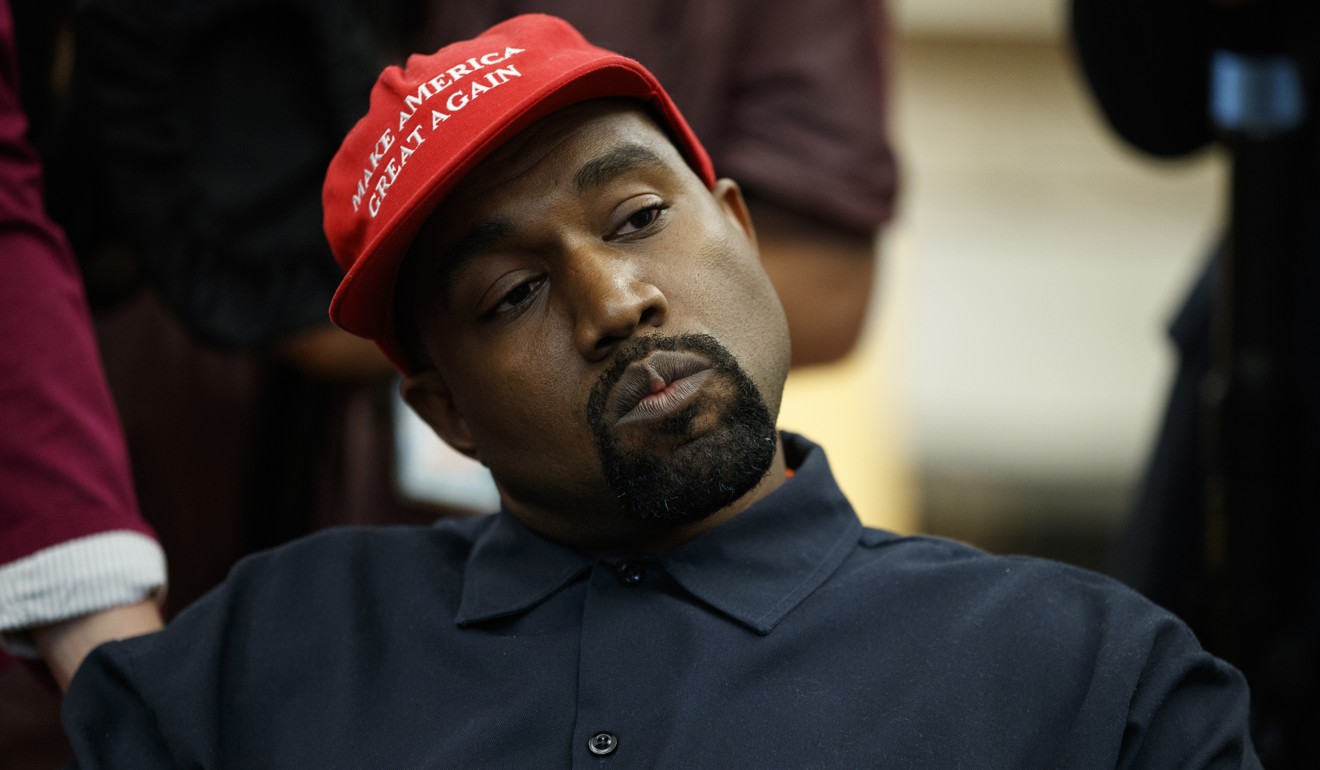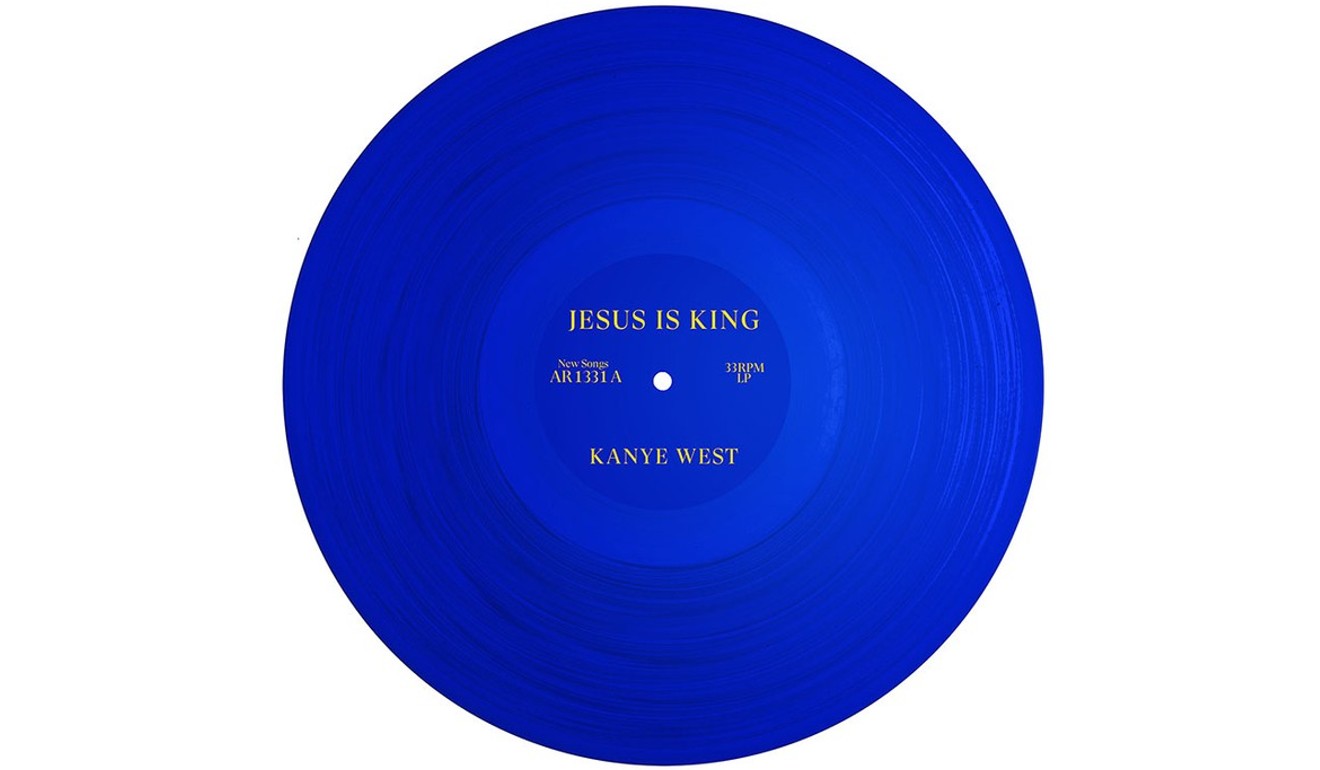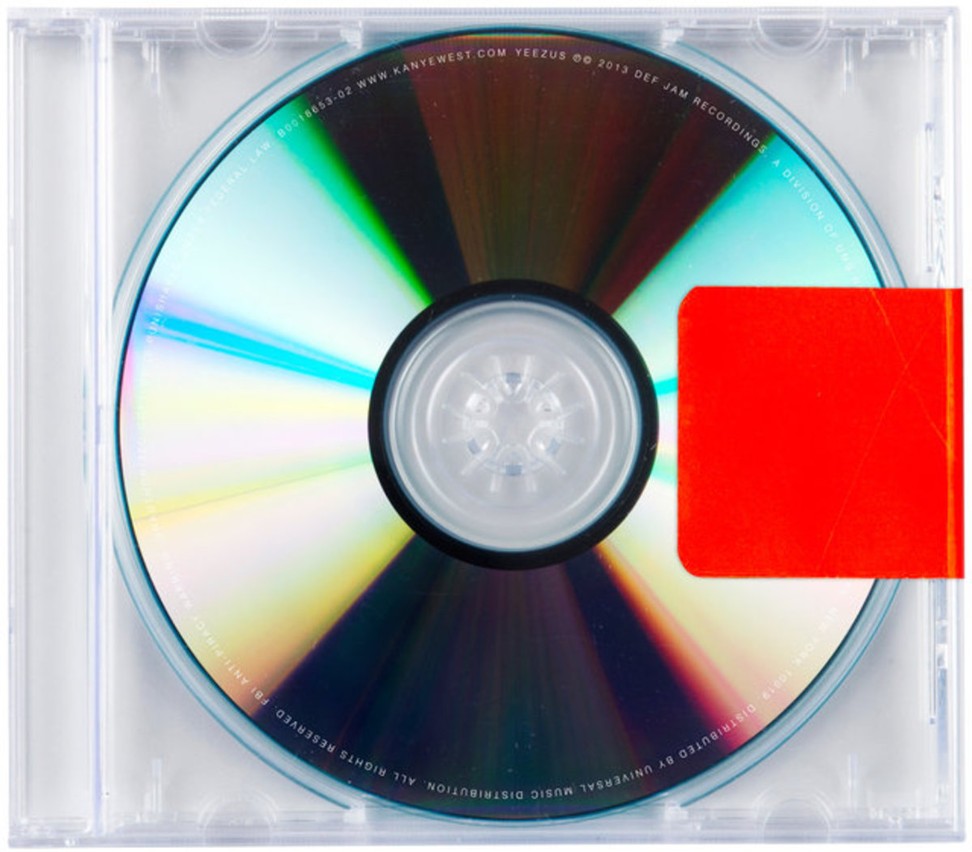
Has Kanye West gone too far with his born-again brand of hip hop?
- The rapper is no stranger to controversy, with remarks about slaves, supporting Donald Trump and disrupting award ceremonies
- His latest album, Jesus, is gospel influenced and echoes his new-found spirituality, but some doubt his motives

There’s a reason the parable of the prodigal son deeply resonates. It’s the story of a lost son who has squandered it all and returns home to be met with unconditional love instead of scorn.
We are inspired by narratives of redemption. And there’s no public figure toying with redemption more than Kanye West.
The idea of restoring one’s self – in West’s case, becoming a born-again Christian – is at the core of the artist’s new gospel influenced album and accompanying IMAX film, Jesus Is King.
The projects arrived after months of West travelling the country with his Sunday Service church revival, which followed, in whiplash fashion, his MAGA-hat-wearing embrace of US President Donald Trump and public rhetoric that seemed to apportion some blame on blacks for slavery.
Jesus, his ninth record, finds West rapping and singing profanity free lyrics about his new-found spirituality over soulful, immaculately produced hip-hop. He plans on touring immediately and has denounced the multi-platinum Grammy-winning work that made him the most influential rapper and producer of his generation.

For years, West – the son of a scholar and a former Black Panther and photojournalist turned pastoral counsellor – was a powerful, pro-black artist. He famously declared that then US president George W. Bush didn’t “care about black people” after Hurricane Katrina.
He criticised the music and fashion industries for their treatment of black creatives, blasted homophobia within hip-hop and disrupted Taylor Swift’s acceptance speech at the MTV Video Music Awards after she won over Beyoncé.
I found Sunday Service exploitative and opportunistic. It’s narcissistic, as everything is with Kanye: it’s about Kanye
His actions, messy as they were, always appeared in service of advocating for the betterment of his people, black people. And it fell in line with his music, which veered far away from gangster posturing in favour of thoughtful, relatable observations on family, sexuality, religion, education, prejudice and wealth.
“He had one of the best hip-hop runs of all time,” says veteran hip-hop journalist Keith Murphy. “Kanye comes from black intellectualism and black excellence. But you can’t go around wearing a MAGA hat saying it’s God’s practical joke. What he’s doing, mixing politics into religion, sounds like a combustible cocktail.”
West has never been far from the teachings of Christianity. The gospel church and its songs of praise and worship – born from the bellies and lungs of slaves – informed his work from the start. Beyond 2004’s jubilant, Grammy-winning Jesus Walks, records such as Spaceships, Touch the Sky, Amazing, The Glory and Ultra-light Beam show an artist consistently crafting rap hymnals.
His performances also transformed into grandiose houses of worship. On his Yeezus tour, he was presented as an apostle, with Jesus rising from atop a glowing pyramid; supporting The Life of Pablo album, he floated across arena floors, literally hovering above his loyal flock.
Since the release of 2013’s Yeezus, West’s work has increasingly hinted at a man who sees himself as a god among men, a feeling shared among critics and fans when he started holding Sunday Service at his Calabasas estate in January.
The invitation only gatherings were described by his wife, Kim Kardashian West, as a “musical ministry” and featured faith-based reworkings of West’s repertoire, plus spirited takes on R&B, soul and traditional gospel records. There was something striking in the earnestness of West huddled in a corner, away from centre stage, dancing alone.
But that’s the beauty of gospel music and exactly why West’s commodification of it continues to be a thorn in the sides of African Americans who have found his behaviour and his comments harmful.

Aside from his comments on slavery echoing common revisionist Civil War history, he’s compared himself to enslaved African-American preacher Nat Turner, questioned why abolitionist and black political activist Harriet Tubman should be on the US$20 bill (Why not Michael Jordan? he asked) and said black people were too focused on racism.
This month in Queens, New York, some church-goers walked out of a service after West descended upon its pulpit. At Howard University, one of the country’s historically black institutions, the rapper baffled the audience by advising, “If they throwing slave nets again, how about we don’t all stand in the same place.” A video of his guitarist’s confused reaction immediately went viral.
“I found Sunday Service exploitative and opportunistic,” says Josh Briond, a West fan since his debut and co-host of the Millennials Are Killing Capitalism podcast. “It’s narcissistic, as everything is with Kanye: it’s about Kanye.”
“This is really for his followers. There is no spirit,” says Dominique Zonyee, an LA-based marketing strategist who grew up in the church. “The message of God is not translating. They are praising a man who is embodying God. That’s not what the gospel is. It’s for worshipping the Lord, not a man.”

“Jesus Is King” has been met with largely tepid reviews. Critics have called the album lyrically lazy, not very good and undercooked. West knows how to craft bangers, and there are plenty on “Jesus Is King”: Follow God and On God fall in line with the heady foot stompers he’s been making for years.
The Sunday Service Choir’s jubilant performance on opener Every Hour is a highlight, as is West stretching his raspy voice on God Is and the frosty, minimalist Use This Gospel. But Jesus doesn’t appear to say much beyond surface level devotionals, and silly lyrics like “What if Eve made apple juice?” and “Closed on Sunday/You’re my Chick-fil-A” certainly don’t do any favours.
So what are we to make of the new West? The West who says he’s spiritually reborn yet espouses rhetoric that’s hurtful to the people who have followed him? The West who wants to spread the word but appears to be in search of his purpose?

In a piece on the Christian hip-hop site Rapzilla, Elijah Matos wrote: “For the sake of argument, say that Kanye West’s ‘reawakening’ is an opportunistic business scheme, but maintains a strong faith-based tone with a push towards Christ. In this case, West would fall under those who are ‘not against you’, and Christians would fall into the same category as the disciples.
“Although Yeezy may not fit the mould of a conventional Christian artist, using his talents to proclaim Christ, even if it is just for a moment in time, Jesus Is King can be a vehicle for the advancement of the Gospel.”
What’s certain is that West’s spiritual journey – whatever it may be – isn’t for us to judge. That lies between him and his god. But if his awakening has shown us anything, it’s how far we are from the Kanye West we once believed we knew.